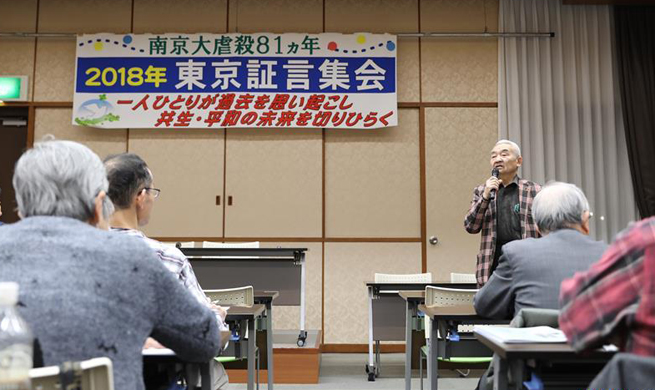ROME, Dec. 13 (Xinhua) -- A nearly two-year-old lawsuit alleging a company unjustly fired one of its workers is having a widespread impact on hiring practices in Italy, analysts said, making employers more and more hesitant to offer long-term contracts.
Italy's national statistics institute ISTAT reported earlier this month that full-time employees accounted for 63.7 percent of the entire workforce as of October, down from 65.1 percent four years earlier.
The trend has accelerated more recently, according to Ebitemp, an association of employment agencies. The association's data shows that the number of temporary employees in Italy rose by 3.4 percent over the year ending in October -- even though overall unemployment numbers remained more or less flat over the last year.
Ebitemp also reported that average working hours per employee grew by 5.1 percent over the last year. That means businesses asked current workers to stay on the job more time in lieu of taking on new employees.
"Companies are worried about taking on new full-time workers," Marco Leonardi, an economist with the Department for the Study of Labor and Welfare at the State University of Milan, told Xinhua. "In past years, it was difficult to fire workers without clear cause but the process was at least certain. Now it is unclear."
Leonardi explained that the firing of a female worker in 2017 -- the identity of the worker and the company are not public - has proved to be a test case after the 2015 labor reform, which aimed to encourage companies to take on full-time workers.
"There was a boom in the hiring of permanent workers after 2015 because of the new reform," Leonardi said. "But now, until there's a court ruling on this lawsuit, things are much less clear."
Italian media reports said the case could be decided next year.
"This trend is happening because many Italian companies are too short-sighted," said Corrado Ezio Barachetti, the national coordinator for labor markets with the Italian General Confederation of Labor, or CGIL, the country's largest trade union.
"Hiring and training a full-time worker is an investment in quality," Barachetti said in an interview. "Italian companies are looking to cut costs instead of improving quality. But a company cannot effectively compete in a global market unless it produces goods and services of the highest quality."
Italy's labor reform, passed with great fanfare in 2015, was intended to have the opposite effect. Though it only had an impact after workers were hired, it would gradually make it easier for companies to fire workers on the theory that such a change would make them more likely to hire them in the first place. The worker behind the 2017 lawsuit was hired after the 2015 reform.
The first move of the new Italian government, in power since June, was to pass what is called a "Dignity Decree," in effect reforming the 2015 reform. The latest decree reduced the maximum length or temporary contracts from three years to two, and it limited renewals to four, one less than before. So far, however, statistics show the decree has had a limited impact.













